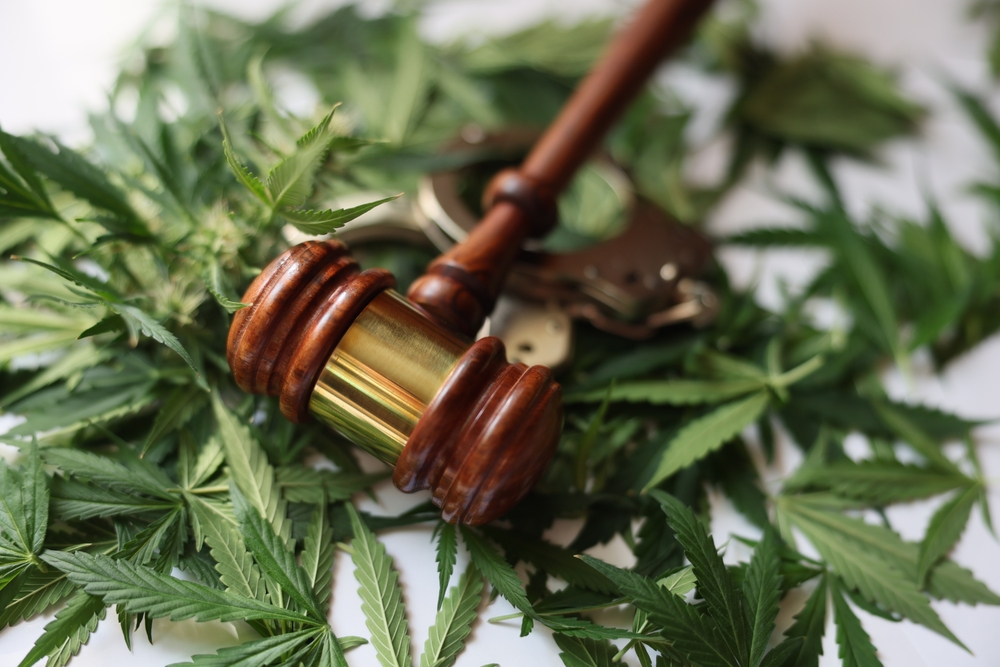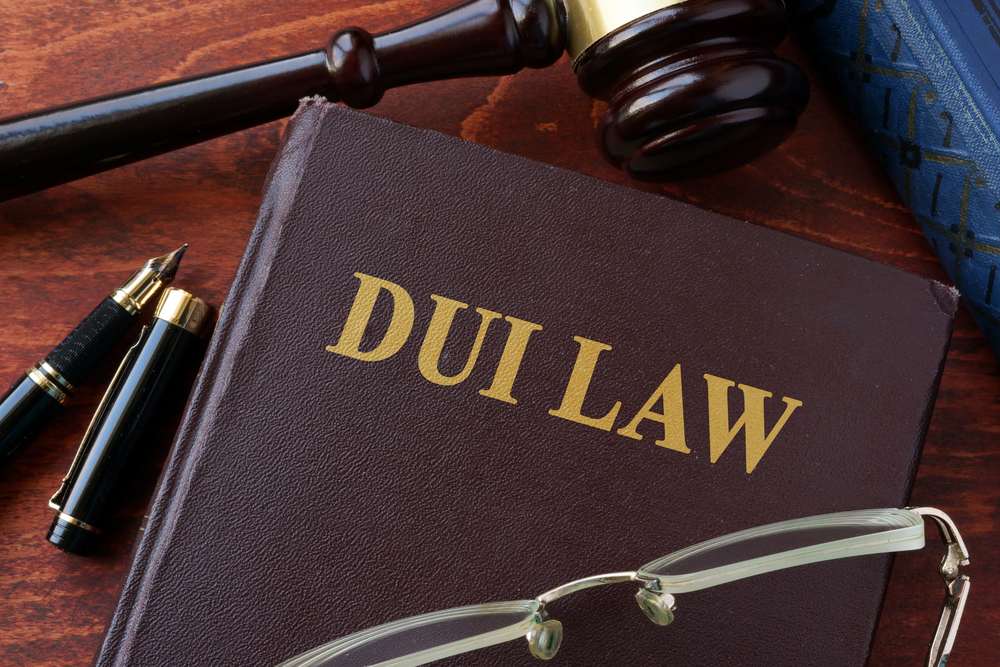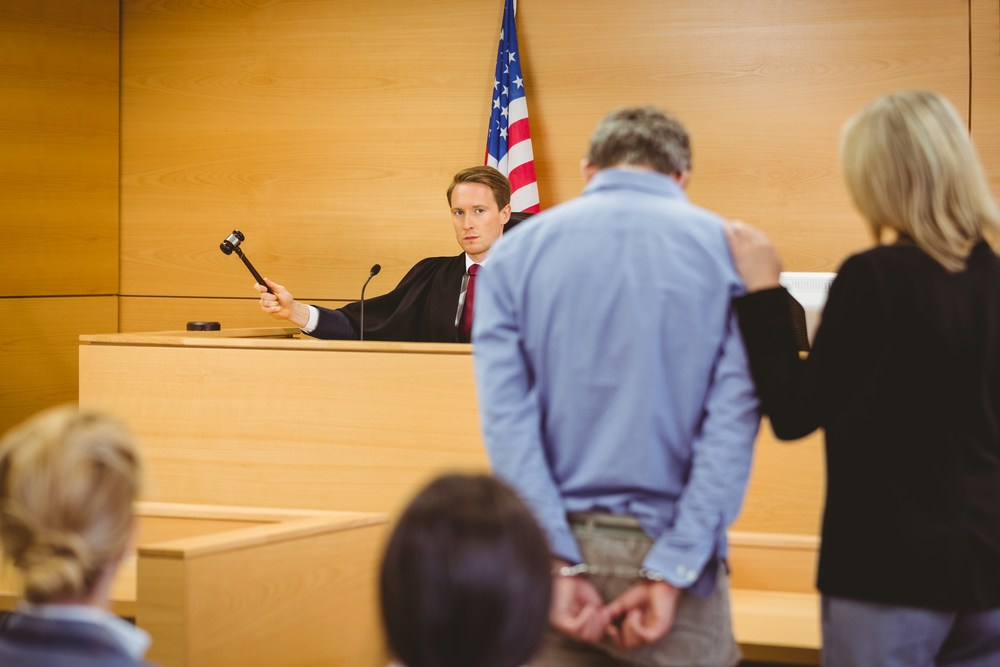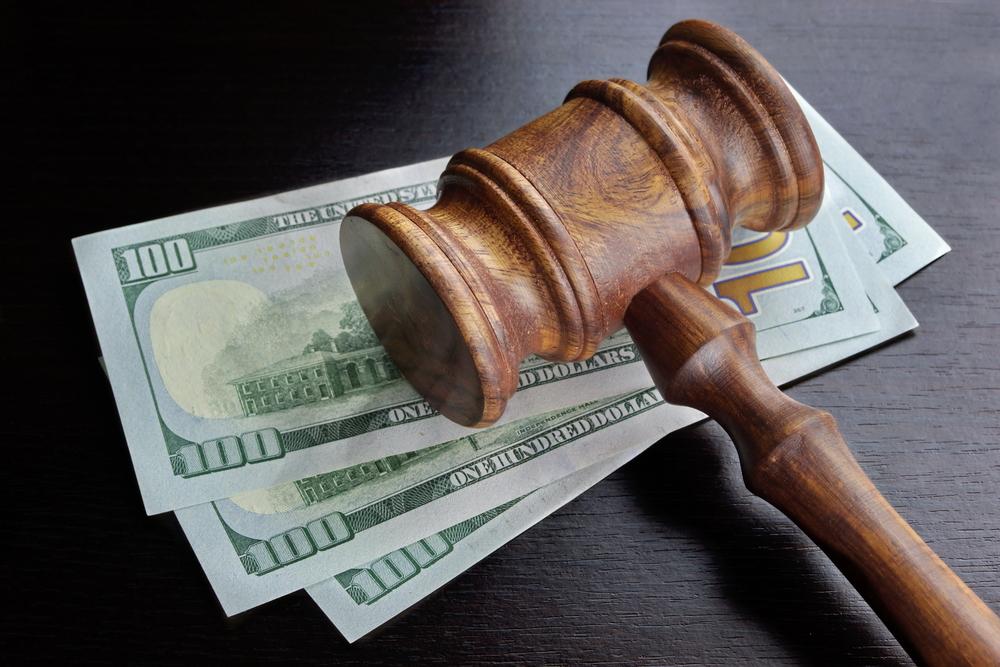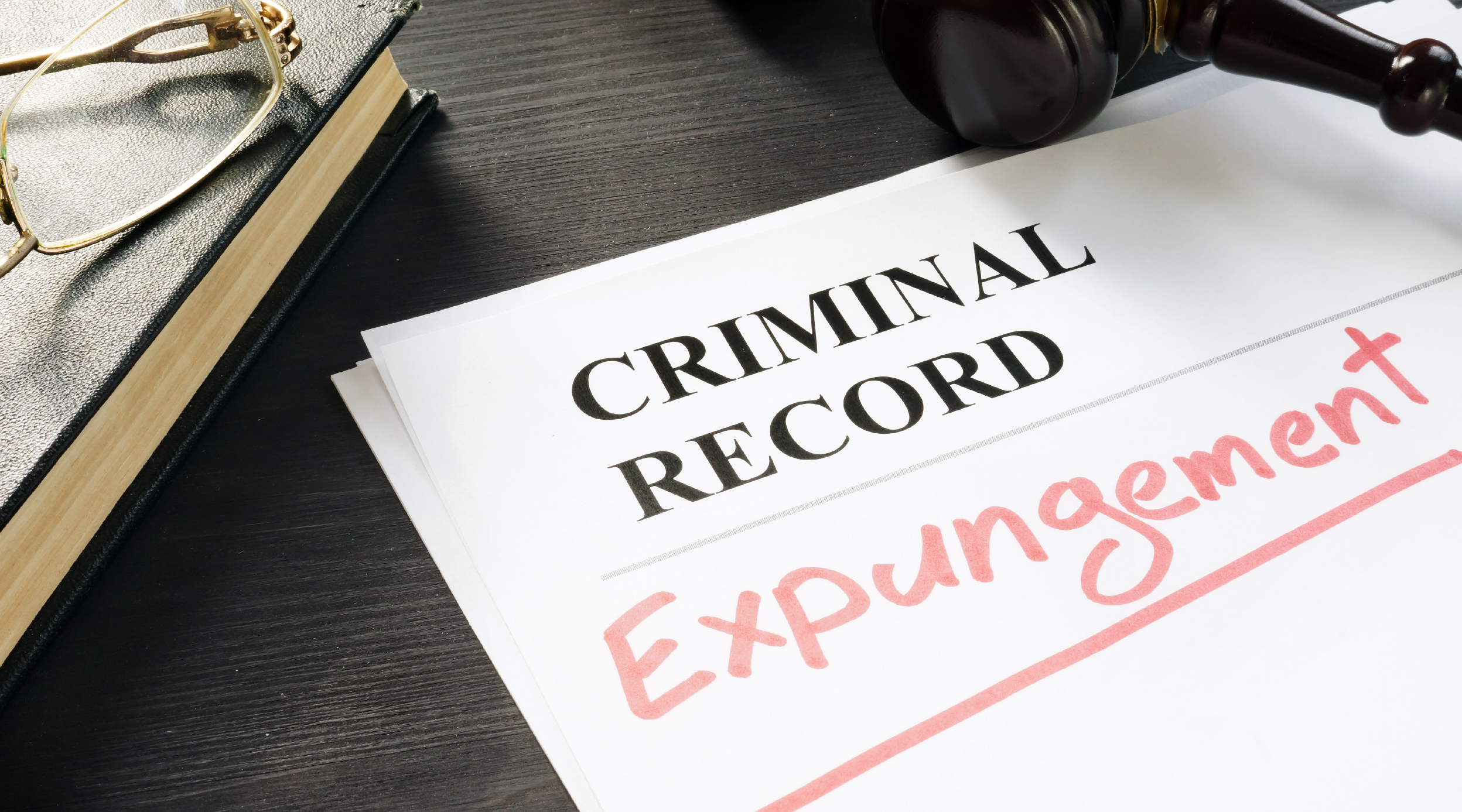Any controlled substance crime involves serious charges, but you might not realize how the legal system establishes degrees of the offense. You
Current/Past Awards & Recognitions

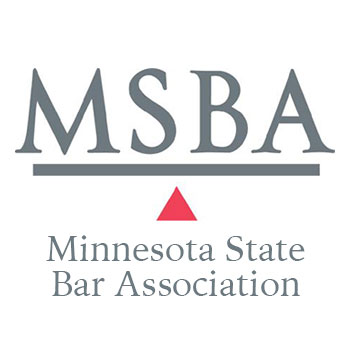











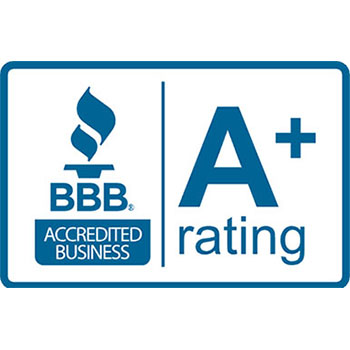







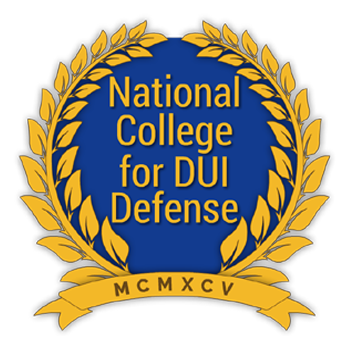
Searching For a Criminal Defense Attorney or Minneapolis DWI Lawyer Near Me?
Let Us Help You Now
Highest Rated Minneapolis DWI Attorneys in Minnesota
The DWI Lawyers at Gerald Miller have helped over 10,000 people with DWI and DUI Defense matters throughout Minnesota. Countless individuals like yourself have experienced favorable results. Call 612-440-3864 now for a free assessment of your case. You can rest easier knowing that you have an experienced DWI Attorney. Let our proven results be your peace of mind.
Best Minneapolis Criminal Defense Attorneys in Minnesota
If you have been charged with assault or domestic violence, a sex crime, a drug offense, fraud, theft or any other criminal offense our team of Criminal Defense Lawyers stand ready to help you 24/7/365. Call 612-440-3864 now for a free assessment of your case. You can rest easier knowing that you have an experienced Criminal Defense Attorney. Let our proven results be your peace of mind.
Frequently Asked Minnesota Criminal Defense Questions
Frequently Asked Minnesota DWI Law Questions
Yes. The first DWI/DUI is the most important. You do not want a DWI/DUI on your record. That means you must start with your first DWI/DUI. Aside from the fact that you may be able to beat it outright, if you’re ever going to have a chance to get a break it will be at your first DWI/DUI. No one is going to give you a break or leeway when it’s your 2nd, 3rd or 4th DWI/DUI. Fight hard at your first DWI/DUI. You only have something to gain and little to lose.
Minnesota’s laws on DUI and DWI are some of the most complicated. Not only should you be concerned about the criminal consequences (jail, fines, probation, etc.), but also about other collateral consequences such as loss of license (license revocation), whiskey plates (license plate impoundment), and loss of vehicle (vehicle forfeiture). To say the least the penalties and consequences for a DWI/DUI are extremely harsh. Because of this, guilt, innocence, right, wrong, good or bad is not the issue. Your future is and you need to do something about it. A good DWI/DUI lawyer can make all the difference in the world. It is often not about what you did but rather what the police did or did not do. An experienced DWI/DUI lawyer will be able to spot any legal issues that might result in reduction or dismissal of charges. Additionally, a lawyer will navigate the court system, including avoidance of harsh or tougher prosecutors and all of the collateral consequences as well. You need to hire an experienced DWI/DUI attorney and you need to do it quickly. There are strict deadlines and procedures that must be adhered to or you may give up your rights. For example, in order to challenge a license loss (license revocation) or loss of vehicle (vehicle forfeiture), a separate lawsuit or challenge needs to be filed with the court within the time period allowed by statute. There is also evidence that must be gathered immediately or it can disappear. The bottom line is don’t risk your future act now. If you find yourself charged with a DWI/DUI, call an experienced attorney at Gerald Miller, P.A. for a free consultation. Our number is 612-341-9080. We answer the phones 24/7..
The best thing you can do if you get a call from a family member or friend that has been arrested for a DWI/DUI is to contact an attorney. There are some very important decisions that an individual needs to make when arrested for a DWI/DUI. Without the proper consultation of an experienced attorney, those decisions can be difficult and often individuals will make the wrong decision.
If you have a friend or family member that calls you after being arrested for a DWI, have them call an experienced attorney at Gerald Miller, P.A. to get a free consultation. Our number is 612-341-9080. We answer the phones 24/7.
The first thing you should do is call and get a consultation with an experienced DWI/DUI attorney. When you are charged with a DWI/DUI, there are certain things that need to be filed in a timely fashion if you want to challenge a license revocation or vehicle forfeiture. If these are not filed in time, you automatically give up your right to challenge them.
An experienced attorney can let you know what the deadlines are and file the paperwork on your behalf. They can also help you to come up with a general strategy for your case and try to find legal issues to fight in court.
If you are facing DWI/DUI charges, call Gerald Miller P.A. right away and talk with one of our experienced attorneys.
Depending on how you fled the police, you could be charged with either a misdemeanor or a felony.
If you flee on foot it would be a misdemeanor, which is punishable by up to 90 days in jail and a fine of up to $1,000.If you flee in a motor vehicle it would be a felony, which is punishable by up to 3 years and 1 day in prison and a fine of up to $5,000. There are also other collateral consequences for a fleeing case like this, such as a license revocation.These cases are always worrisome and can be very confusing. If you find yourself charged with fleeing a police officer, whether on foot or in a motor vehicle, call an experienced attorney at Gerald Miller, P.A. Our number is 612-341-9080. We answer the phones 24/7.
There isn’t a straightforward answer to this question. Most attorney’s charge based on their experience in a field. You do not want to hire the least expensive attorney that you can find. Many times, attorney’s that don’t charge very much don’t plan on doing a lot of work for your case. Remember, you get what you pay for.
Great attorney’s aren’t cheap, but they will make a world of difference in your case. If you want to hire someone that will be willing to put in the work and fight for you, be prepared to spend some money to make that happen. A good attorney will not only work hard for you but they will also make this very scary process much easier for you. If you find yourself charged with a DWI/DUI, call an experienced attorney at Gerald Miller, P.A. Our number is 612-341-9080. We answer the phones 24/7.
Felony DWI/DUI’s are very serious offenses. Not only are you facing prison time if you are charged with a felony, but your driver’s license will also be cancelled. On top of that, if you are convicted of a felony you lose your certain rights, like your ability to vote and own firearms, just to name a few.
Felony DWI/DUI’s are very serious offenses, and can lead to severe consequences. If you are charged with a felony DWI/DUI, call Gerald Miller P.A. right away to get a free consultation with one of our experienced attorneys.
There are different types of court appearances when you are charged with any crime in Minnesota. Your first time in court will either be a first appearance or an arraignment, depending on the level of your charge. At this hearing, the court will make sure that you understand what is going on in your case. In certain types of cases, the court will also set conditions of release, which could include some monetary bail.
The next court appearance will either be a pre-trial or omnibus hearing. If you go to court by yourself, this would be the time that you speak with the prosecutor about your case and potentially negotiate a settlement or bring up any legal issues that you have. If you have an attorney, they would do that on your behalf.
Going into court by yourself can be scary and is not recommended. Prosecutor’s know that you are not an attorney and will sometimes take advantage of that. Additionally, being that you are not trained in the law, it could be difficult to spot legal issues that may get your case dismissed. Just like most people would call an electrician if they needed their house wired, you should also call an attorney if you need to be in court.
If you find yourself in a position that you are scheduled to go into criminal court, call the experienced attorneys at Gerald Miller P.A. to set up your free consultation today.
Depending on the type of case you have, a judge may require that you post a bail in order to get out of custody. Certain cases, such as DWI/DUI’s can have mandatory bail. For instance, if you are arrested for a DWI/DUI and your blood alcohol concentration is .16 or above, it is mandatory that the court set bail in the amount of $12,000. Until that is done, you cannot be released from custody. This bail is set to ensure that you return for court. If you post a bail and do not return for court, that bail will be forfeited by the court and a warrant will be put out for your arrest.
Getting a bail set can be accomplished a few different ways. If you are arrested, you can wait until you are brought to court and a judge will address it at that time. However, if you are arrested on a Friday night, that means that you will be sitting for the entire weekend, as there is no court on Saturday or Sunday. The other option is to hire an attorney right away and have that attorney try to get in touch with the prosecutor and a judge to attempt to get bail set. The attorney can also help you to get in touch with a bail bond company so that you can get the bail posted right away. If the attorney is successful, you will be able to get out of custody much earlier.If you find yourself or a loved one in custody for a criminal offense, call the experienced attorneys at Gerald Miller P.A. to discuss the circumstances and try to get a bail set right away.
Once you are arrested for a DWI/DUI, you may either be held in custody or booked and released, depending on the circumstances. Generally, if you are being charged with a misdemeanor DWI/DUI, you will be booked and released.
However, if your blood alcohol concentration is .16 or higher, or if you have prior DWI/DUI convictions, you could find yourself in a situation that requires you be held in custody until a judge sets bail. In these situations, if you don’t want to sit in jail until you are scheduled for court, you must hire an attorney.
That attorney can then attempt to get in touch with the prosecutor and a judge to request a bail be set. If they are successful, they can then get you in touch with a bond company to assist you in posting the bail.
The experienced attorneys at Gerald Miller P.A. are available 24/7 for situations just like this. If you or a loved one find themselves stuck in jail for a DWI, give us a call to discuss the situation and get started on working towards getting bail set.
DWI/DUI’s are serious offenses that not only come with a stigma, but can also affect your career or your ability to find a job in the future. In some circumstances it is possible to get a DWI/DUI reduced to something like a careless driving. However, it takes a lot of work and almost always requires the skills of an experienced attorney.
You need to have an attorney that understands how the legal process works when it comes to DWI/DUI cases, and who has a good working relationship with your prosecutor. The attorneys at Gerald Miller P.A. work all over the state of Minnesota and know how to work with the prosecutor’s to obtain the best results possible. If you find yourself charged with a DWI, give us a call to set up your free consultation and get started on the right path to deal with your DWI/DUI.
DWI’s are difficult cases to deal with. They are complicated, with many moving parts. If you aren’t an experienced attorney, it would be very easy to get lost when trying to deal with a DWI/DUI.
Yes a DWI/DUI can be beat.. There are a few different ways to try and go about it. You can file a pre-trial challenge to try and get evidence suppressed. For example, if an officer didn’t have a valid reason to stop your vehicle, any evidence they gained as a result of that illegal stop would be suppressed. If this were the case, the prosecutor would no longer have sufficient evidence to go forward with the case, and it would have to be dismissed.
Another option would be to have a jury trial. A jury trial is a little more difficult, in that the evidence has been deemed appropriate by that time. This means that the prosecutor will likely be allowed to tell the jury about your blood alcohol test result. However, if there are any irregularities with that result or with the testing procedure itself, you can try to cast doubt on its accuracy.
Fighting a DWI/DUI can be tedious and confusing. I you need someone in your corner, call Gerald Miller P.A. and talk with one of our experienced attorneys to formulate a strategy and fight for you.
In Minnesota, there are two different types of breath tests. There is a Portable Breath Test (PBT) and a DataMaster Transportable (DMT). These tests serve two different functions, and have different requirements when asked to take them by an officer.
The PBT is a preliminary test. It is no different than the eye and balance tests that officers have you take on the side of the road. This test is used to determine if an officer is going to place you under arrest or not. However, the result of the PBT cannot be used against you in court. You are not required to submit to this test when asked by an officer. With that being said, if you refuse to take it you will almost always be placed under arrest.
The DMT is the official breath test. This is the test that can be used against you in court. You are also required to take the DMT if an officer requests it, even if you took a PBT when the officer arrests you. If you refuse to submit to the DMT, you will be charged with an additional, more serious, charge of test refusal.
If you or a loved one find themselves arrested for a DWI/DUI, the officer should give you an opportunity to contact an attorney prior to the DMT test. During this time, it is best to give one of the experienced attorneys at Gerald Miller P.A. a call to discuss your options and help you make the best decision. We are available 24/7 for situations just like this.
The decisions that you make after being arrested for a DWI/DUI are critical. They can make or break your case. One of those decisions is whether or not you agree to take a test. This part can be a little confusing, and you should always contact an attorney prior to making your decision.
There are three different types of tests that can be administered when you are arrested for a DWI/DUI. Those tests are breath, blood and urine. Breath is in one category of test and blood and urine are in another.
If an officer asks you to submit to a DMT breath test, you must submit to that test. Refusal to do so will result in an additional, more serious, test refusal charge. The officer does not need a warrant for this type of test. In a situation like this, you do not have the option of a different type of test.
The other category of test is blood and urine. In a situation where an officer is requesting that you take a blood or urine test, they are required to have a warrant. If they do not have a warrant, you do not have to take the blood or urine test. Additionally, you can choose whether you take a blood or urine test. For example, if the officer requests a blood test and you have a fear of needles, you can say no and they have to offer you a urine test. If they do not offer you the option of urine, you cannot be charged with test refusal. If you were to refuse the urine test as well, then you could be charged with test refusal.
The decisions that you have to make after being arrested for a DWI/DUI are extremely difficult and can be very confusing. If you find yourself or a loved one arrested for DWI/DUI, contact Gerald Miller P.A. right away to discuss your options and help you make the best decision. We take calls 24/7.
When you are arrested for a DWI/DUI, the arresting officer will undoubtedly ask you to submit to either a blood, breath or urine test. Whether you take that test or not is a critical decision and can have very serious consequences. You can refuse to take these tests, but you will be charged with the crime of refusal, which is going to automatically be a more serious offense than it may have been if you chose to take the test.
The answer is not that simple though. Breath tests can be confusing for many, as there are generally two breath tests that an officer requests. The first is called a PBT and it is generally done on the side of the road, or wherever you were pulled over. This is not an official test, and you cannot be criminally punished or charged for refusing it.
The other type of breath test is called a DMT. This is the official test and you will be charged with a crime if you refuse to take it. You can refuse it, but you could be making the situation worse for yourself if you do.
Blood and urine tests are in a different category that breath tests. You are, in a way, allowed to refuse a blood or urine test without consequences. However, if you refuse both you will be charged with the more serious crime of refusal. Here is an example: The officer has a warrant for blood or urine and requests that you take a urine test. You have a problem urinating in the presence of others, so you decline. The officer is then required to request a blood test from you. You must take this test. If you do not, you will be charged with test refusal.
Finally, if the officer does not have a warrant for your blood or urine it is within your legal right to refuse and you cannot be charged criminally for that in DWI/DUI arrests. If you are arrested for a DWI/DUI, call the experienced attorneys at Gerald Miller P.A. right away. We can help you make these difficult decisions.
In Minnesota, there are two different types of DWI/DUI’s in Minnesota. The first, and what most people know about, is having a blood alcohol concentration of 0.08 or higher when driving. The second is being under the influence of alcohol while driving, regardless of what the test result is. For example, if an individual has a test result of 0.07 but the officer believes that the alcohol impaired their ability to drive, that person can be charged with driving under the influence of alcohol.
The first is easier to prove. The prosecutor just needs to show that you took a test and the result was above 0.08. The second can be a little more tricky. The prosecutor must prove that you drank some alcohol, and that you were impaired by that alcohol to the point that it affected your ability to drive. In some cases when there is no egregious driving conduct and someone performs well on field sobriety tests, it can be hard for a prosecutor to prove that.
The attorneys at Gerald Miller P.A. have over 50 years of combined experience dealing with DWI/DUI cases. If you find yourself in the unfortunate position of being charged with a DWI/DUI, call us today to set up your free consultation where we can discuss the best strategy for your case.
While it is most common for someone to be charged with a DWI/DUI when their BAC is 0.08 or above, you can be charged with a DWI/DUI if your test result is below 0.08. This type of DWI/DUI is when the officer believes that you are impaired by, or under the influence of, the alcohol to the point that it affects your ability to drive the vehicle.
In these situations, the prosecutor must be able to prove not only that you consumed alcohol, but that the alcohol impaired your ability to drive your vehicle. That can be a difficult task. It is important that you have an attorney if you are charged with this type of DWI/DUI, as a conviction would cause your license to be revoked. If you find yourself charged with a DWI/DUI under these circumstances, call the experienced attorneys at Gerald Miller P.A. right away to set up your free consultation.
In Minnesota, you can be charged with a DWI/DUI if you are under the influence of marijuana while driving. Marijuana cases are a little different from alcohol cases, or other type of drugged driving cases though.
For you to be convicted of DWI/DUI involving marijuana, the state needs to prove that you were under the influence of marijuana. The simple presence of marijuana in your system is not enough. They need to prove that the marijuana was affecting you and your ability to drive. This is because marijuana can stay in your system until long after the effects of the marijuana are gone. Because of this, these types of cases can be difficult for prosecutors to prove.
If you are charged with a DWI/DUI that involves marijuana, call Gerald Miller P.A. right away to set up your free consultation.
In Minnesota, the mere presence of a schedule I or II narcotic in your system is grounds for a DWI/DUI charge. The state does not need to prove that you were under the influence of that drug, just that you had the drug present in your system at the time you were driving. These types of cases are complicated and the tests done on your blood or urine need to be reviewed for accuracy.
If you are charged with this type of DWI/DUI, call Gerald Miller P.A. right away to set up a free consultation with one of our experienced attorneys.
A prior DWI/DUI conviction, or license revocation, will have an effect on any new DWI/DUI charges. It can also have an effect on future employment, depending on what type of field you are in.
DWI convictions are called enhanceable offenses. That means that the more DWI/DUI’s that you have during a 10 year period, the worse each subsequent DWI/DUI will be. If you get two DWI/DUI’s in a 10 year period, the second one has a mandatory minimum 30 day jail sentence, and your license will be revoked for a minimum of 1 year, along with your license plates being impounded. Depending on what your blood alcohol concentration is, your vehicle could also be forfeited.
If you have 3 DWI/DUI’s in a 10 year period, the third one has a mandatory minimum 90 day jail, your license will be cancelled for 3 years and will have more requirements for reinstatement. You will be required to have whiskey plates, and your vehicle will be forfeited.
For a 4th DWI/DUI in a 10 year period, you will be charged with a felony. There is a potential that you could go to prison, but at a minimum there would be a 180 day jail sentence. Your license would be cancelled for 6 years, you would need to have whiskey plates and your vehicle would be forfeited. Additionally, and DWI you got after that would be a felony, regardless of when it happens. For example, let’s say you are convicted of a felony DWI/DUI. Then you go 20 years with no new DWI/DUI convictions, but you get another DWI/DUI 21 years later. That new DWI/DUI will be charged as a felony because you have a prior DWI/DUI felony conviction.
These cases can be very confusing and can have some long-term consequences. The state is not there to help you when you go to court. Their goal is to obtain a conviction. If you find yourself charged with any type of DWI/DUI, you need an attorney right away. Call Gerald Miller P.A. and set up a free consultation with one our experienced attorneys today.
Much like a prior DWI/DUI conviction in the state of Minnesota, a prior DWI/DUI conviction from another state can affect any new charges here in Minnesota. DWI/DUI’s are called enhanceable offenses. That means that any new DWI/DUI charges will be worse if you have a prior conviction in the last 10 years. This includes out of state convictions.
On top of that, if your license was revoked in another state for a DWI/DUI, you may not be eligible for a license in Minnesota if that revocation is not cleared up. Additionally, if you have a Minnesota license and you get a DWI/DUI in another state, Minnesota can (and likely will) revoke your license here.
If you are charged with a DWI/DUI in Minnesota, or if your license is being revoked for a DWI/DUI in another state, call the experienced attorneys at Gerald Miller P.A. today to discuss your options.
Minnesota’s Implied Consent law means that any person who drives or operates a motor vehicle on a Minnesota roadway “impliedly consents” to a test of their blood, breath or urine if they are arrested for a DWI/DUI. This means that if you are arrested for a DWI/DUI in Minnesota, you are required to submit to a chemical test at the direction of a peace officer, and if you do not you will be charged with an additional (more serious) charge of refusal.
Breath is a little different than blood and urine. If the officer has probable cause to request a test, and they request a breath test, you are legally required to submit to that test even if the officer does not have a warrant. For blood and urine that requirement is the same, however the peace office must first obtain a warrant. If they do not have a warrant for blood or urine, you are not required to submit to the test in a standard DWI/DUI situation.
The other difference between blood and urine is that you have the right to a “choice” between the two. For example, if the officer has a warrant and asks you to take a blood test, but you have a fear of needles, you can say no to that test. At that point the officer has to offer you a urine test. If they do not, you cannot be charged with refusal of the blood test. However, if they do offer you the alternative and you refuse that as well, you can (and will) be charged with a refusal.
If you are charged with a DWI/DUI under Minnesota’s Implied Consent Law, call the experienced attorneys at Gerald Miller P.A. today.
In Minnesota, it does not take a conviction for a DWI/DUI for the state to take your driver’s license. If you are charged with a DWI/DUI, your license will be revoked when the Department of Public Safety receives your test result. Depending on your history, your license could be revoked from 30 days to 6 years.
You do have the right to challenge the license revocation, but you only have 60 days from the time they give you notice to do so. If you do not file the challenge, you automatically give it up and will be required to serve the entire revocation, even if there are legal issues to challenge in your case.
If you are charged with a DWI when your blood alcohol concentration is under .08, your license will only be revoked if you are convicted of the DWI.
These types of cases can be very confusing and have a lot of moving parts. Hiring an attorney is the best thing you can do to help manage those moving parts. If you or a loved one finds themselves charged with a DWI/DUI, call the attorneys at Gerald Miller, P.A. to set up your free consultation right away.
When you are arrested for a DWI/DUI and your blood alcohol concentration is 0.08 or more, or if you refuse to submit to the test, your license will be revoked, generally within 7 days of your arrest. The length of that revocation will depend on a few different factors: How high your blood alcohol concentration (BAC) is, how many prior DWI/DUI’s you have had in the last 10 years AND in your lifetime, if you refuse the test.
Depending on these factors, your license could be revoked for anywhere from 90 days to 6 years. For a first time DWI/DUI with a BAC of .08 to .15, the length of the revocation is 90 days. If your BAC is .16 or higher, or if you refuse the test, the length will be 1 year.
If it is your second DWI/DUI in a 10 year period and your BAC is .08 to .15, your license will be revoked for 1 year. If your BAC is .16 or higher or if you refuse it will be revoked for 2 years.
For your third offense in a 10 year period, regardless of whether you take the test or what your BAC is, your license will be cancelled as inimical to public safety for 3 years. For a fourth offense in a 10 year period, the cancellation jumps to 4 years, and for a fifth offense in a 10 year period it goes up to 6 years.
The DWI/DUI’s don’t necessarily have to be within a 10 year period either. The state can use any DWI/DUI’s from your lifetime to lengthen a license revocation. For a third offense in your lifetime, regardless of when they happened, and your BAC is .08 to .15 your license will be revoked for a 1 year period. If your BAC is .16 or higher, or if you refuse the test, it will be a 2 year period.
If you have a fourth offense in your lifetime, regardless of when they happened, and your BAC is .08 or higher, or if you refuse to submit to the test, your license will be cancelled for a period of 3 years. Finally, if you have a fifth offense in your lifetime, regardless of when they happen, and your BAC is .08 or higher, or if you refuse to submit to the test, your license will be cancelled for 6 years.
If you are charged with a DWI/DUI and your license is being revoked, call Gerald Miller, P.A. right away for a free consultation. Our experienced lawyer will take the time to discuss your case and all of your options with you.
If you are convicted of a DWI/DUI, it will remain on your record for the rest of your life. A criminal record is permanent and convictions do not fall off of your record automatically. This is also true for any license revocation that goes onto your driving record.
However, if you were to get a second DWI/DUI, that original DWI/DUI on your record must have happened within the last 10 years in order to enhance the new DWI/DUI. Enhancement means that the new charge is more serious due to the prior conviction.
DWI/DUI convictions can have a long lasting effect on your life. If you are charged with a DWI/DUI, call Gerald Miller, P.A. right away and discuss your case with one of our experienced attorneys.
Having a DWI on your driving record can affect many different areas of your life, from getting certain jobs to obtaining insurance. The good news is, you can try to get a DWI/DUI expunged from your record.
In order to be eligible for this, you need to be off of probation for the criminal DWI charge for anywhere from 2-4 years. You cannot get a felony DWI/DUI expunged. So long as you have committed no crimes during that time, you are eligible to apply for an expungement on misdemeanor and gross misdemeanor DWI/DUI offenses. That does not mean that it will be granted, just that you have standing to file for it.
Once you have filed for it, you need to be able to give the court a good reason that you need the expungement. It cannot just be that you don’t want it on your record anymore. If you can prove to the court, by clear and convincing evidence, that the benefit to you would be equal to or greater than the detriment to the public in the file being sealed, then you should be granted an expungement, which would get the DWI off of your driving record.
If you have a DWI/DUI on your driving record and you need to get it removed, call the experienced attorneys at Gerald Miller, P.A. to set up a free and confidential consultation.
You can get a DWI/DUI expunged in Minnesota. There are certain requirements that you need to meet prior to being eligible for that expungement. First and foremost, time needs to have passed between when you were convicted of the DWI/DUI and when you are requesting the expungement.
If you are convicted of a Misdemeanor DWI/DUI, you need to be off probation for at least 2 years, and during that 2 years before you file you cannot have any new convictions. It is similar for gross misdemeanors and felonies, but the time periods are longer. It is 4 years for a gross misdemeanor and 5 years for a felony.
If you have met those requirements, you are eligible to file for an expungement of a DWI/DUI. In order to be granted the expungement, you must show the court by clear and convincing evidence that the benefit to you is equal to or greater than the disadvantage to the public and public safety in having the record sealed.
Expungements are very technical. Not only do you have to meet certain time requirements, you also need to file and serve specific documents with multiple state agencies. This can be very confusing, and any mistake can make your request fall apart. If you are considering an expungement, call the experienced attorneys at Gerald Miller P.A. to discuss your options with a free consultation.
Not only can DWI/DUI’s affect you in the state where you receive them, they can also have an impact in other states. There is an interstate compact, and the member states of that compact share information regarding driving records with one another. This is in place so that if your license is revoked in one state, you can’t just go to another state and get a license there.
If you have a license from another state and get a DWI/DUI in Minnesota, there is a good chance that your license will be revoked in your home state at some point. Every state handles this differently. Some states will not revoke your license unless you are convicted of the DWI/DUI in Minnesota, while some will revoke your license right away, even before you are convicted. It depends on what state you are from and what information they receive from Minnesota.
If you have a license from a state other than Minnesota and you get a DWI/DUI in Minnesota, call and set up your free consultations with one of Gerald Miller, P.A.’s experienced attorneys.
If you are licensed in Minnesota and get a DWI/DUI in another state, there is a high likelihood that Minnesota will take action against your Minnesota driver’s license. This can either come before or after you are convicted in that other state, and the length of the revocation can vary depending on a number of different factors, including your history and the test result.
If you are arrested in another state for a DWI and you have license complications here in Minnesota, give the experienced attorneys at Gerald Miller, P.A. to discuss your options for getting back on the road in Minnesota.
If your license is revoked for a DWI/DUI, it can be very scary. You don’t know how you can get to work and keep earning a living. The good news is that even when your license is revoked, you do have a way to drive.
In certain circumstances, you are eligible to be on a work permit. Generally, if it is your first DWI/DUI in a 10 year period and your blood alcohol concentration is between .08 and .15, you will be eligible for a work permit. However, depending on your record and how many DWI/DUI’s you have during your lifetime, you may not be eligible even if the current DWI/DUI is your first in a 10 year period.
You will need to pay the $680 reinstatement fee and fill out an application for a new license. Additionally, you will need to pass a written test on chapters 7 & 8 of the Minnesota Driver’s Manual. Finally, you will need to meet with an evaluator. That evaluator will work with you to set up your work permit so you know when and where you are allowed to drive.
Getting your driving privileges back can be a very confusing process. The attorneys at Gerald Miller, P.A. are well versed in DWI/DUI laws and can help you get through that process. If you have lost your license due to a DWI/DUI, call us today to set up your free consultation.
If your license is revoked due to a DWI/DUI in Minnesota, you’re probably wondering what you need to do to get back on the road as soon as possible. Depending on your exact situation, there are a few different options available to you, and they all have different hoops that you will be required to jump through.
In certain situations, you can just choose not to drive. For this to apply, your license needs to be revoked for 2 years or fewer. If it is any longer than that, you don’t have the option to just sit out the revocation period. More on that below. If you do choose to not drive during the revocation period, you will still be required to pay the $680 reinstatement fee and take the written test on chapters 7 & 8 of the Minnesota Driver’s manual prior to your license being reinstated.
If driving is a must for you, there are other options. In some situations, you may be eligible for a work permit. If that is the case, you will need to pay the $680 reinstatement fee and take the written test mentioned above. You will also need to fill out an application for a new license and meet with an evaluator to go over your work schedule and set up the work permit so that you know when you are allowed to drive.
Not everyone is eligible for a work permit. If you don’t qualify for that, you must get on ignition interlock if you want to drive during your revocation period. To get on ignition interlock, you must go through the following steps: get ignition interlock installed in your vehicle from one of the state approved vendors; talk to your insurance and have them send over an SR-22 document to the Department of Public Safety (The SR-22 is proof that the insurance company will insure a “high risk” driver); pay the $680 reinstatement fee and take the written test mentioned above; and fill out an application for a new license. Once all of this is done and the paperwork is processed you will be allowed to drive using the ignition interlock device.
If your license is taken for 3 years or more, you are cancelled. As mentioned above, you are not allowed to just sit the revocation period out when you are cancelled. In order to get your license back when cancelled, you have to follow the steps listed in the previous paragraph, along with the following: get a chemical health assessment done and provide the Department of Public Safety with proof of the assessment and proof that you are working on the treatment that it recommended. Additionally, the first year of your cancellation you will be on a limited license, similar to the work permit, along with ignition interlock.
License revocation and cancellation for DWI/DUI’s can be very confusing. There are a lot of moving pieces, and a lot of hoops that you have to jump through. If the state has taken your license due to a DWI, set up a consultation with the experienced attorneys at Gerald Miller, P.A. to learn how to get back on the road.
If you are charged with a DWI in Minnesota because your blood alcohol concentration (BAC) was .08 or more, your license will be revoked or cancelled 7 days after you are given notice of the revocation or cancellation. Generally speaking, this is 7 days after you are arrested for the DWI/DUI. If you had a blood draw and the results come in later, it will be 7 days from when they notify you that your license is being revoked.
In certain situations, you can be charged with a DWI/DUI if your BAC is below .08. In these situations, the only way that your license can be revoked is if you are convicted of the DWI/DUI. If this is the case and you are convicted, that conviction will be sent to the department of public safety. Once they receive the conviction, they will send you a letter telling you when your license will be revoked.
If you are arrested for a DWI/DUI and are going to lose your license, call Gerald Miller, P.A. to set up a free consultation with one of our experienced attorneys.
If you are arrested for a DWI/DUI in Minnesota and your BAC is 0.08 or higher, your license will be revoked. Generally, you will be given a notice by the arresting officer letting you know when your license will be revoked. This notice is very important. Once you are given the notice, you only have 60 days to file a petition for judicial review of that revocation. If you do not file that paperwork in that specific timeframe, you automatically give up your right to challenge the revocation.
The document that you have to file with the court is also very important. You need to make sure that you have all of the correct information in it, and that you specifically lay out all of the issues you are challenging. Any mistakes can be fatal to your challenge. It is best to have an experienced attorney file the challenge on your behalf, to ensure that everything is done correctly.
If your license is being taken due to a DWI/DUI arrest, call Gerald Miller, P.A. right away to set up your free consultation. The experienced attorneys know how to handle license revocation challenges and can get started on your case right away.
If you are arrested for a DWI/DUI in Minnesota and your blood alcohol concentration (BAC) is 0.08 or higher, your license will be revoked. In some situations, the only way for you to drive when your license is revoked is to get on ignition interlock. This can be a very confusing process, as there are many hoops that you will have to jump through for the state to allow you to drive.
The first thing you can do is set up an appointment to get the ignition interlock device installed through one of the state approved vendors. Once it is installed, the vendor will generally send in proof of installation to the state on your behalf. You will also need to contact your insurance company and have them send over a document to the state called an SR-22. That is proof that your insurance company will provide you with “high risk” insurance.
Once that is done, you will need to go into the DMV and take a test on chapters 7 & 8 of the Minnesota Driver’s Manual, pay the $680 reinstatement fee, and fill out an application for a new license. Once all of that is done, and the state processes the paperwork, you will be allowed to drive during your revocation period.
In some instances, a driver has their license cancelled rather than revoked. This is generally done for repeat offenders. If this is the case, not only do you have to follow the steps laid out above, but you will also have to obtain a chemical health assessment and provide it to the department of public safety, along with proof that you are following the recommendations of that assessment. Once you have completed this additional step, you will be allowed to drive on ignition interlock.
If your license is being revoked because of a DWI, call Gerald Miller, P.A. and set up your free consultation. The experienced attorneys can review your case and help you get back on the road.
Violation of the rules of the ignition interlock program can come with a variety of consequences. If you are required to drive with it in your car, and you are stopped while driving a vehicle without it installed, you can face criminal charges.
Additionally, if you have it installed in your vehicle and you blow a positive test, the length of your revocation can be extended. This can not only be financially burdensome, but also very scary.
If you find yourself with an ignition interlock violation, call the experienced attorneys at Gerald Miller, P.A. to set up your free consultation today.
If you are arrested for a DWI/DUI, your care will generally be towed. Sometimes, if you are in a place where your car is already legally parked, the officer will just leave it there. In certain situations, your care is going to be held for forfeiture, in which case you cannot just go and pick it up.
However, if your vehicle is just towed because you were pulled over on a freeway, for example, you will be able to get it back. The officer that arrested you should give you some paperwork that tells you where the vehicle was towed to. You will need to contact that tow yard or impound lot and set up a time to go pick it up. You will need to pay any towing and storage fees before they will release it. Additionally, if your license is revoked you will need to have a licensed driver accompany you to drive the vehicle home.
If your car has been towed due to a DWI/DUI arrest, give the experienced attorneys at Gerald Miller, P.A. a call to set up a free consultation.
If you are arrested for a DWI/DUI while driving someone else’s car, and that car is being held for forfeiture, the owner of the vehicle will have to file paperwork to try to get it back. Because you are not the registered owner of the vehicle, you do not have any standing to challenge the forfeiture, therefore you cannot file any paperwork.
There is a defense available to a vehicle owner that has a vehicle being forfeited for a DWI/DUI when they were not the driver. This is generally referred to as the “innocent owners defense.” In order for this to be successful, the innocent owner needs to show by clear and convincing evidence that they did not have knowledge, actual or constructive, that the vehicle would be used in a manner contrary to law, or that they took reasonable steps to try to prevent the vehicles use by the offender.
If the person arrested has 3 or more prior DWI/DUI convictions and is a family or household member of the owner of the vehicle, the vehicle owner is presumed to know of any vehicle use by the offender that is contrary to law.
If your vehicle is being forfeited because someone else got arrested for a DWI/DUI while driving it, call the experienced attorneys at Gerald Miller, P.A. today to set up an appointment to discuss your options.
Whiskey plates are special registration plates that are required by the state in certain situations following a DWI/DUI arrest. These plates look different that regular license plates. They are black and white, and generally start with the letter “W.”
When these plates first came out, a police officer could pull you over just for having them on your vehicle. However, the Minnesota Supreme Court has ruled that unconstitutional, and an officer must have a reason other than the plates to stop your vehicle. At this point, the plates are essentially nothing more than a scarlet letter.
If you find yourself in a situation where your license plates have been impounded, contact Gerald Miller, P.A. today to discuss your options and defenses today.
If you were driving someone else’s vehicle and were arrested for a DWI/DUI, the vehicle you are driving may be subject to a plate impoundment. This can make for a very awkward conversation. In these situations, it is possible to get the plate impoundment removed from the innocent owners vehicle.
Assuming that the offender had a valid license at the time they were stopped, the innocent owner can do the following: File a sworn statement with the commissioner of public safety that states they are the registered owner of the vehicle, that they are the current owner and possessor of the vehicle, the date on which the offender obtained the vehicle from the innocent owner, the address of the innocent owner and the offender on the date the offender obtained the vehicle from the innocent owner, that the innocent owner was not a passenger in the vehicle at the time of the violation, that the person knows that the offender may not drive, operate or be in physical control of the vehicle without a valid license.
Once this is complete and processed by the state, the plate impoundment order on the innocent owners vehicle should be lifted.
If the offender did not have a valid license on the date of the offense, the innocent owner can get the plate impoundment off of their vehicle if they made a report to law enforcement prior to the violation happening stating that the vehicle had been taken from them or was being used without their permission.
If your vehicle is required to have whiskey plates due to someone else’s mistake, call the attorneys at Gerald Miller, P.A. today and talk with one of our experience attorneys.
If your license plates are impounded due to a DWI, and you are the registered owner of the vehicle, your license plates will be impounded for at least 1 year. If, at the time that 1 year has elapsed, you do not have a valid license (either fully valid or on ignition interlock) that plate impoundment will continue until you get that taken care of.
If the vehicle is not registered in the offenders name, the license plates will be impounded for 1 year only.
If you are required to have whiskey plates due to a DWI/DUI arrest, call the experienced attorneys at Gerald Miller, P.A. for a free consultation.
If your vehicle is required to have whiskey plates, you can sell it. However, there are some restrictions on who you can sell it to, and there are some additional hoops to jump through.
First and foremost, if your vehicle is subject to a license plate impoundment, you cannot sell the vehicle to a family or household member. You must also be selling the vehicle for valid consideration. This means that you cannot just give it away or sell a $5,000 vehicle for $50.
The person buying the vehicle must also sign a sworn statement, affirming that they are not a family or household member of the offender, they understand that the vehicle is subject to the impoundment order, and that it is a crime to file a false statement regarding this sale or allow the offender to drive or operate the vehicle during the impoundment period.
Once all those steps are completed, along with the normal steps you have to go through to sell a vehicle, the new owner can apply for regular license plates.
If your vehicle is subject to a plate impoundment order and you are looking to sell it, call the attorneys at Gerald Miller P.A. to get a comprehensive walkthrough on what you need to do.
Your license will be cancelled as inimical to public safety if you have 3 or more DWI/DUI’s in a 10 year period, or if you have 3 prior DWI/DUI’s in your lifetime and you get a new DWI/DUI.
When you are cancelled as inimical to public safety, there are some additional hoops that you need to jump through in order to get your license back. First, you will be required to be on ignition interlock for the entire cancellation period in order to get your license back. This means that if your license is cancelled for 3 years, you need to be on interlock for 3 years in order to get it back without the use of interlock.
For example, your license is cancelled for 3 years. You wait for 3 years from the date of cancellation to try to get it back. At this point, you will still have to get on interlock and stay on it for 3 years in order to get it back fully, with no interlock. This means that you would have essentially turned your 3 year cancellation into a 6 year cancellation.
On top of that, the first year of the cancellation is on a limited license, meaning that you are only able to drive with interlock and for work purposes. After the first year, you just need to be on interlock and will have no time restrictions.
Finally, prior to being allowed to drive with the interlock device, you will need to complete a chemical health assessment and provide proof of the assessment to the department of public safety, along with proof that you are working on (and eventually that you have completed) the recommendations of the assessment.
If your license is being cancelled, call the experienced attorneys at Gerald Miller, P.A. to set up a free consultation and learn how to get back on the road faster.
If you have a CDL and you are arrested and charged with a DWI/DUI in Minnesota, your CDL will be revoked. The length of that revocation depends on what your history looks like.
If it is your first DWI/DUI and you are a CDL holder at the time of the offense, your CDL will be revoked for a 1 year period. On top of that, depending on the insurance company they use, some companies will not be able to hire you for longer than a year. If it is your second DWI/DUI and you were a CDL holder at the time of your first offense and your second offense, it is a lifetime loss of your CDL.
If you are charged with a DWI and you hold a CDL, your livelihood is at stake. You only have a limited amount of time to challenge your license revocation. If you don’t challenge it in time, you will be stuck with the revocation no matter what happens in the criminal case. The attorneys at Gerald Miller, P.A. have a lot of experience working with these types of cases. Call us today and set up your free consultation.
If you hold a CDL and get a DWI in a non-commercial vehicle, you will still lose your CDL. For your first offense, your CDL will be pulled for 1 year. for a subsequent offense, it will be a lifetime loss of the CDL.
In these situations, you only have a limited amount of time to challenge the taking of your CDL. If you do not file your challenge in a timely manner, you will automatically be stuck with the revocation. This is true even if your criminal case is completely dismissed.
If you are a CDL holder and you are arrested for a DWI/DUI, call Gerald Miller, P.A. right away. Our experienced attorneys know how to handle cases like yours, and will take the time to sit down and discuss your options with you.
There really is no difference between a DWI and a DUI in Minnesota. DWI means driving while impaired and DUI means driving under the influence. In both cases, the state is alleging that you drank alcohol (or used drugs) and that it affected your ability to safely operate the vehicle you were driving or operating. The terms are used interchangeably.
There are 4 different degrees of DWI/DUI in Minnesota: 4th degree, 3rd degree, 2nd degree and 1st degree.
4th degree DWI/DUI is a misdemeanor, which is the lowest level. If it is your first DWI/DUI and your blood alcohol is between 0.08 and 0.15, it will be a misdemeanor 4th degree DWI/DUI. The maximum penalty for this is 90 days in jail and a fine of $1,000.
3rd Degree DWI/DUI is a gross misdemeanor. You can be charged with this if it is your second DWI/DUI in a 10 year period, or if it is your first DWI/DUI and you have some aggravation factor, like a BAC of .16 or more, or a child in the vehicle. The maximum penalty for this is 365 days in jail and a fine of $3,000.
2nd degree DWI/DUI is also a gross misdemeanor. You can be charged with this if it is your third DWI/DUI in a 10 year period, or your second DWI/DUI in a 10 year period with 1 additional aggravation factor present, or if it is your first DWI in a 10 year period with 2 aggravating factors present. The maximum penalty for this is the same as 3rd Degree DWI, but in addition your vehicle will likely be forfeited if you are charged with this.
1st degree DWI/DUI is a felony. There are only two ways that you can be charged with 1st degree DWI: if you have 3 prior DWI/DUI convictions or license revocations in the prior 10 years, or if you have previously been convicted of a felony DWI in Minnesota. The maximum penalty for this is 7 years in prison and a fine of $14,000.
If you are charged with any level of DWI/DUI, it can be a very scary situation. Not only are you facing criminal charges, but your license will also be revoked and there is a chance that your vehicle will be forfeited. The experienced attorneys at Gerald Miller, P.A. have a wealth of experience in DWI/DUI cases. Call today to set up a free consultation and sit down with one of our attorneys to discuss the best strategy for your case.
According to MN DWI laws, there are four different aggravating factors. First, your newest case can be made more serious if you have a prior impaired driving incident within the ten years immediately preceding the current offense. This can be either a criminal conviction to a DWI, or an alcohol-related loss of license on the civil side. Next, a DWI case gets more serious if you have an alcohol concentration of 0.16 or more, which is double the legal limit. And it is also an aggravating factor if you are driving under the influence or over the legal limit and have a child under the age of 16 in the motor vehicle at the time of the offense as well. And the last way that a case can be made more serious is if you refuse to submit to a chemical test. That decision will automatically move the case up to a gross misdemeanor per statute. It is also important to know that any combination of these aggravating factors will continue to raise the level of the DWI and its exposure to consequences.
In Minnesota, a felony DWI is a serious criminal offense. Accordingly, it takes only a few limited circumstances to get a DWI case charged at that level. First, if the newest DWI offense is your 4th in a 10 year period, then it is a felony. A DWI can also be a felony if previously convicted of a felony (possibly even in another state if similar laws) or if previously convicted of a felony criminal vehicular operation or homicide offense prior to this newest offense.
The penalties stemming from a DWI ultimately depend on a number of factors. First, in MN, the Minnesota Legislature has decided that mandatory jail time begins to be imposed if people have prior offenses within 10 years of the newest offense. Even a Second offense in a 10 year period mandates 30 days jail. That number increases to 90 days with a 3rd offense in 10 years. Even if jail time is not imposed, jail alternatives like house arrest or even community service can be added to a sentence. And one of the most important aspects to some DWI sentences can be the probationary conditions, the random alcohol testing, the curfews, the limits on travel, etc.
But in addition to jail time increasing, the MN Department of Public Safety also increases the license revocation as well. Using those to example above, the person facing a 2nd offense in a 10 year period faces at least 1 year of revocation. A 3rd offense could mandate ignition interlock for 3 years or the revocation time does not decrease at all. Financially, the fines also increase when a case gets more serious. The mandatory minimum fine for a misdemeanor is $300, while a gross misdemeanor is $900. Then, there are some very specific penalties that can occur for certain cases. If the test result in your case is over .16, then there is another $1,000 penalty assessment available to the prosecutor and court to impose, and you may face 1 year of needing “W” plates on your vehicle.
Actual in custody jail time will depend on the circumstances of your case. For some cases, if there is an alcohol concentration of .16 or more, if there is a kid in the car at the time of the offense, or if there is a refusal, you can be held in jail for up to 48 hours right after arrest before being released. Moving forward in the case, jail time is always a potential outcome. And while there are ways to avoid jail time, it is not something to disregard. There is no mandatory minimum sentence to be served for a first-time offender (unlike is the case for second and more offenses in a 10 year period), so technically jail time is not necessarily common for a first offense, but it can and does happen under certain circumstances, or if you do not do things the right way while your case is pending. Ultimately, jail time can be something a prosecutor feels required to do if: there is an accident involved, if you are uncooperative with law enforcement, if your chemical is very high blood alcohol content or if there are reasons to send a message to change your behavior.
This depends on when the prior DWI occurred. If you get 2 DWI/DUI’s in a 10 year period, there is a mandatory minimum 30 day jail sentence. At least 48 hours of that sentence have to be served consecutively in custody. The balance can sometimes be negotiated to something other than jail time, like electronic home monitoring. However, not all counties will agree to that. Sometimes, prosecutors will just want you to serve the 30 days in custody
If you get a DWI/DUI, and you have a prior DWI/DUI from more than 10 years ago.
In this situation, there is no mandatory jail time. That’s not to say that a prosecutor or judge can’t or won’t ask for jail time, there is just no mandatory amount that must be served.
If you are charged with a DWI/DUI and facing jail time, call the experienced defense attorneys at Gerald Miller, P.A. to set up a free consultation today.
There can be alternatives, depending on your situation. Some cases require a mandatory minimum amount of jail. In these situations, it can be difficult, however not impossible, to avoid actual in custody jail time.
There are different alternatives that can be negotiated in lieu of jail time.
One of those options is electronic home monitoring (EHM). If you are placed on EHM, you will have to wear an ankle bracelet and will not be allowed to leave your home. You can get work release if you are on EHM, but you will only be allowed to leave your home to go to work, and as soon as you are done you have to get back home.
A second option is Sentence to Service (STS). STS is essentially free work for the county. You show up and have to do an 8 hour work day of whatever the county is having you do that day. Most commonly you will notice this when you see people cleaning trash from the side of the road.
The final option is community work service (CWS). If you are sentenced to community work service, you will be required to complete a certainamount of hours volunteering for a non-profit organization.
If you are charged with a DWI/DUI and are concerned about going to jail, call the attorneys at Gerald Miller, P.A. to set up your free consultation today.
If you are on probation for a DWI/DUI and you pick up a new DWI/DUI, you will have a host of issues to deal with. Other than having to deal with a new charge, your probation officer will also violate your probation.
Once this happens, you will either get a summons to show up for court on the probation violation, or a warrant will be put out for your arrest. In the latter situation, you will need to turn yourself in and be seen in front of a judge, who will decide whether or not to let you out of custody.
When your probation is violated, the court can impose some or all of the jail time that was stayed as part of your probationary sentence. For example, if you were given a 30 day stayed sentence as part of your probation, the court could make you serve anything up to 30 days in jail.
If your DWI/DUI probation is violated because of a new offense, contact Gerald Miller, P.A. right away to set up a free consultation.
If you are arrested for a DWI/DUI because you got in an accident that injured or killed someone, you will be charged with either criminal vehicular operation (CVO) or criminal vehicular homicide (CVH). These are very serious charges that are generally felonies.
Felony CVO and CVH can lead to prison time. On top of that, your license will be taken away for a longer time than a regular DWI/DUI. Prosecutors take these cases very seriously, as there is an actual victim in the case, or in the case of a CVH, a victim’s family, that are very invested in the outcome.
If you are charged with CVO or CVH, contact the attorneys at Gerald Miller, P.A. to get a free consultation today. These are extremely serious cases, and you will need an attorney to make sure that your rights and future are protected.
In Minnesota, you can be charged with a DWI/DUI if you are driving, operating or in physical control of a motor vehicle. The definition of driving is very straightforward. However, operating or being in physical control can be a little more difficult to understand.
In MN, a person can be charged, and possibly even convicted for not actually driving or operating a vehicle. It is contained in the “physical control” aspect of MN DWI laws. Physical control is a situation in which it will depend on the specific facts and circumstances of each specific case. A jury, for example, would have to look at the facts presented to determine whether someone is in a position to easily put the vehicle into motion. The jury or judge would balance factors such as: where you are sitting in the car at the time you are contacted by law enforcement, where are the keys to the vehicle, is the car running, are you even in the car, is the vehicle a “push start” or not, etc. MN laws punish the ability for someone to drive drunk, even if they never did, and possibly never intended to drive.
Additional facts can also come into play as well, such as: whether the vehicle is inoperable at the time, how the vehicle came to rest in its current situation if driven by another person, etc. Ultimately, the answer is yes. Prosecutors can charge and try to convict you even if you are not driving, if they can prove you were in physical control of the motor vehicle, while under the influence of alcohol or controlled substance.
In Minnesota, a police officer is not required to read your miranda rights when they arrest you for a DWI/DUI. In fact, the only time that an officer is required to read your miranda rights after any arrest is if they are going to be asking you custodial questions. These are generally questions that will be incriminating.
Now, if an officer does place you under arrest and questions you without reading your miranda rights, generally the information that they obtain will not be admissible in court. This does not mean that your charges will be dismissed. It only means that the information they obtain from the questions cannot be used against you in court.
DWI/DUI’s can be very confusing, as officers aren’t necessarily required to read your miranda rights. If you are arrested for a DWI/DUI and have concerns about your rights being violated, contact the attorneys at Gerald Miller, P.A. to discuss your rights and the options you have available to you.
You can be charged with DWI/DUI if you are on any of the above named vehicles. The standards are almost the same as for a DWI/DUI in a regular vehicle. So you can be charged if you are under the influence of alcohol or a controlled substance, or if your blood alcohol concentration is 0.08 or higher at the time or as measured within 2 hours of driving.
Additionally, even though most of these vehicles do not require a driver’s license, your driver’s license will be revoked as well. The length of the revocation will depend on how high your blood alcohol concentration is, along with your prior history.
If you are charged with a DWI/DUI while driving one of the above named vehicles, contact the attorneys at Gerald Miller, P.A. today to find out what your options are going forward.
Based on what has been called “Little Alan’s Law” in MN, yes, A DWI can affect your ability to drive a boat, all terrain vehicle or snowmobile. According to Minn. Stat. 84.91, if you are convicted of a DWI, you will be prohibited from driving a snowmobile or all-terrain vehicle for 1 year. Then, according to Minn. Stat. 86B.331, being convicted of a DWI will result in the loss of your ability to drive a boat for a period of 90 days.
Furthermore, the boating prohibition will only count during the months of May 1st through October 31st in any given year. It is important to note that the loss of these privileges directly ties to whether you are convicted of the DWI offense. The loss of license, or the implied consent civil revocation case tied to a DWI will not cause these two statutes to come into play.
Whether you get your DWI in a boat, car, ATV, or snowmobile, the same sentencing statutes apply. Prosecutors and judges will not distinguish between the mode of transportation when considering punishment. If your first DWI on record was committed in a vehicle, and your second offense in a 10 year period was committed in a boat, Minn. Stat. 169A.275 and its mandatory jail time provisions will still apply. THe question of jail will come down to the factors of your case. Do you have prior history, how high was your chemical test result, did you submit to a chemical test, did you have children in the vehicle or boat with you, did you get into an accident, etc. Each case will be assessed by a prosecutor, and possibly a judge at the time of sentencing, and punishment including jail, will be determined. But, ultimately, just because the offense happened in something other than a passenger motor vehicle on the roadway, does not mean that the risk of jail time is somehow decreased because of that fact alone. An offense on an ATV can be treated just like had it happened in a motor vehicle.
The short answer is that a DWI can impact immigration status. Even following the arrest itself, MN law mandates that the driver submit to fingerprinting and they have their picture taken as a part of the booking process. This can be inputted into a national database and is permanent. This record, which is separate from what the conviction would look like, will be there if you are applying for work authorization, any status adjustments, or if you are trying to naturalize, among others. Ultimately, there are three things that are the main consequences when you are convicted of a DWI (and these things are commonly laid out in the plea petition in court as well): possible deportation, you could be denied admissibility back into the country if you left, and you could also have trouble naturalizing as well. According to the immigration status you have, a conviction may not affect you the same as someone else. How a DWI can possibly affect your immigration status is very personal to your circumstances, whether the DWI injured someone or if a kid was in the car, or if you had drugs versus alcohol. Furthermore, your prior history, or lack of history, could also affect the decisions made on your immigration status as well.
The first thing to consider is that an FAA notification letter needs to be filled out and sent into the FAA. This is a document letting the FAA know this action, whether it is a charge or loss of license for the DWI, has taken place. Once the case resolves, another notification letter needs to be sent in again confirming the end result. But, this notification letter is not the end of the process. Now, the FAA will typically have the medical certification unit of the FAA run their process. That department will first make sure you did the notification letters. If you did not, that can cause issues alone, even if the DWI wouldn’t have been an issue, for example. Also, The medical certification process will possibly require proof of chemical health and rehabilitation efforts, they will want to see police reports from the offense, and will ask for more information from you as a part of their processing. Then, they run their own diagnostic on whether to suspend, terminate, or to issue any other corrective action. The tough answer is that it depends. It depends on whether or not you have prior negative history that was already on a record or not, how serious the DWI offense was, etc.
If you are convicted of a DWI/DUI, you will be inadmissible to Canada for a certain period of time after your conviction. It does not matter if the DWI/DUI is a misdemeanor, gross misdemeanor, or Felony. They are all treated the same by Canadian Imigration, and they will all result in your inadmissibility to Canada.
There are different ways that you can enter Canada, even after a DWI/DUI conviction. In order to do any of these, you will need to contact a Canadian immigration attorney. The first option, and the only one that is not permanent, is called a temporary resident permit (TRP). This will allow you to enter Canada for a specified period of time and for a specific reason. Generally, these are not granted for vacation or leisure.
The second option is permanent, if granted. It is called criminal rehabilitation. Again, if you want to do this you would need to contact a Canadian immigration attorney. To be eligible for this, you must have completed all of the terms of your DWI/DUI sentence and have been off of probation for 5 years. If this is granted by Canadian Immigration, it will be permanent.
The third and final option is called Deemed Rehabilitation. In this instance, 10 years must have passed prior since you were discharged from probation for the DWI/DUI. At this point, so long as certain criteria are met, a Canadian immigration officer may disregard the conviction and allow you into Canada. Notice that the word is “may,” no “must.” You should contact a Canadian immigration attorney to confirm whether or not you can enter Canada if you believe you have been deemed rehabilitated.
If you find yourself charged with a DWI/DUI and are concerned about your ability to enter Canada, call the experienced attorneys at Gerald Miller, P.A. today. While there are options available for you to enter Canada after a DWI/DUI conviction, they are complicated and can be expensive. The best way to avoid inadmissibility to Canada is to try and avoid a conviction all together.
DWI/DUI convictions could have an effect on your ability to enter countries, other than Canada. Every country treats DWI/DUI’s, and even other alcohol related offenses, differently. Depending on how that country treats a DWI/DUI, you could be inadmissible.
This means that, even if you buy plane tickets and show up at the border, you could be turned away. If you have been convicted of a DWI/DUI and are planning to travel outside of the country, you need to do your research first. Your best option would be to work with a travel agent, who could give you the information you need, or go straight to the source and contact that country’s embassy or consulate in your state to find out.
If you are charged with a DWI and are worried about your ability to travel internationally in the future, your best bet is to contact an attorney. The experienced attorneys at Gerald Miller, P.A. will sit down with you and help come up with the best strategy for your case.
Sometimes when you are arrested for a DWI/DUI, your information may be printed in the local news paper. Any type of criminal charge for an adult is public information. Unfortunately, that means that the newspaper can have access to the charges, and are fully within their rights to print it in their paper.
If you are charged with a DWI/DUI and your name is printed in the paper, give the attorneys at Gerald Miller, P.A. a call. While we cannot stop the paper from printing your information, we can help with your case and try to clear your name.
When you are going to court, especially if you have never been there before, it is a very scary experience. One thing that most people are concerned about is if they dress appropriately.
For the most part, there is no dress code for defendants going into court. Generally the dress code is for attorneys. That’s not to say that you shouldn’t dress nicely. Showing up to court in a collared shirt, or a shirt and tie, with a nice pair of dress pants will look much better than showing up in a ripped pair of jeans, shorts, or a t-shirt. If you look the part, the prosecutor and the judge will know that you are taking things seriously.
Some counties do have dress codes specific to their court, so always make sure to call and check with court administration prior to attending your hearing.
If you are charged with a DWI/DUI, you need representation. Call Gerald Miller, P.A. today to set up your free consultation. We will sit down with you to discuss your case, and can also make sure that you are comfortable in choosing what to wear when we do go to court.
If you have a special license or certification for your job, a DWI/DUI charge or conviction could have an impact on your ability to work. It depends on what kind of license that you have.
Most professional licencing boards have strict standards that the individuals they license have to follow. This could include not getting any DWI/DUI’s. The best way to find out if that is the case is to call that board directly and find out what type of impact a DWI/DUI would have on the license. Most people don’t want to do this themselves, as they don’t want to get in trouble.
If you have a DWI/DUI charge, call the attorneys at Gerald Miller, P.A. to discuss your case. We will give you a free consultation, and if you have a professional license we can confidentially contact your licensing board and get more information for you.
Whether you disclose a DWI/DUI conviction on a job application is a very important decision. If an employer does a background check and finds that you have a DWI/DUI conviction that you did not disclose, they may not be willing to offer you a job.
Deciding to disclose or not really depends on the questions that are asked in the application itself. If the application does not have a spot for you to disclose criminal convictions, then you likely do not need to disclose them. However, if the application has an area where it asks about criminal convictions, you likely need to disclose your DWI/DUI conviction.
If you have been charged with, or convicted of, a DWI/DUI, call the experienced attorneys at Gerald Miller, P.A. We can sit down and give you a free consultation, and help you determine what you need to do on your job application.
This depends on how you are employed and what your job requirements are. If you have some type of employment contract, there may be something in that contract that requires you to disclose and DWI/DUI convictions. If you do not disclose, it could be grounds for immediate termination of your contract.
If you do not have a contract, you still may need to disclose to your employer. There may be a policy or a company handbook that requires you to disclose a DWI/DUI charge or conviction. You should check and see if there are any policies that require disclosure prior to making your decision. Additionally, if your job requires driving, or if you have a company car, you will likely need to disclose that DWI/DUI to your employer, as it could affect their ability to insure you as a driver.
If you are charged with a DWI/DUI, contact the attorneys at Gerald Miller, P.A. We can help you navigate these confusing waters, and come up with the best strategy for your case.
This really depends on your insurance company. All insurance companies handle DWI/DUI’s differently, and how they handle them can vary depending on the plan you have as well.
Some insurance companies will drop you from your insurance if you get a DWI/DUI. This means that they will no longer insure you, and you will need to get insurance through a different company. Other companies won’t drop you, but will raise your rates. Finally, some companies won’t do anything.
If you have a DWI/DUI and you are having difficulties with your insurance, call the attorneys at Gerald Miller, P.A. to discuss your options.
Underage drinking and driving is when someone under the age of 21 is arrested for driving with any amount of alcohol in their body. There does have to be physical evidence of the alcohol present in their body.
For example, say an officer pulls over someone under 21 and asks if they have been drinking. The person says that they had something to drink 10 hours ago. The officer has the person submit to a breath test and the result does not show any alcohol. In this situation, the person could not be charged with underage drinking and driving.
However, if the breath test shows any trace of alcohol, such as a blood alcohol concentration of .01, that person would be charged with underage drinking and driving. Additionally, if the person’s BAC is .08 or higher, they will be charged with a DWI/DUI as well.
There are various penalties for underage drinking and driving. On the criminal side, it is a misdemeanor, which is punishable by up to 90 days in jail and a fine of $1,000. If you are convicted, your license will also be revoked for a minimum of 30 days, and up to 180 days if it is your second or subsequent offense.
If you find yourself or your child charged with underage drinking and driving, call the experienced attorneys at Gerald Miller, P.A. today to set up your free consultation.
Not a drop means that someone under that age of 21 is not allowed to drive a vehicle with any amount of alcohol in their system. That means that if they are pulled over and have their breath tested, even if the result is only .01, they will be charged with underage drinking and driving.
Vanessa’s law went into effect in 2004, one year after Vanessa Weiss was killed in a car accident when she was the passenger in a vehicle of an unlicensed 15 year old driver. Vanessa’s law bars individuals under the age of 18 from obtaining a driver’s license if they are in a crash related traffic violation, or if they receive a DWI/DUI or a DWI/DUI related offense (Open Bottle, Underage Drinking and Driving, etc..). These individuals are not allowed to obtain a license until they turn 18, and even then they are first required to be on a provisional license.
If your child is facing a criminal charge of DWI/DUI, or one relating to an accident, call the experienced attorneys at Gerald Miller, P.A. today to set up a free consultation. These charges are very serious and can affect your child for years to come. The attorneys at Gerald Miller, P.A. will take the time to sit down with you and your family and figure out the best strategy for this difficult situation.
Our Minneapolis Law Firm Will Make A Difference For You
Discover What Our Minnesota Clients Are Saying
Proven Lawyers Delivering Proven Results
Case Results
State V. A.D.
County: Hennepin
Original Charge: (F) 2nd Degree Burglary, Felony Theft
Test Result: None
Priors: None
Final Disposition: STAY OF IMPOSITION* on 2nd Degree Burglary, Felony Theft Dismissed
Sentence Imposed: This was a very serious charge, carrying a very serious term of jail for the client if convicted. Our attorneys were abl...
State V. A.S.
County: Washington (StillwateR)
Original Charge: (GM) 3rd Degree DWI (Minor Child in the Vehicle)
Test Result: 12
Priors: None
Final Disposition: 12
Sentence Imposed: We were able to secure a sentence which included no executed jail, and a $300.00 Fine....
State V. A.T.
County: Scott
Original Charge: (GM) 2nd Degree DWI (3 Minor Children in the Vehicle)
Test Result: 057
Priors: 2
Final Disposition: (PM) Careless Driving
Sentence Imposed: We were able to negotiate the Client’s Gross Misdemeanor charge down to a Petty Misdemeanor, which does not carry any ...






